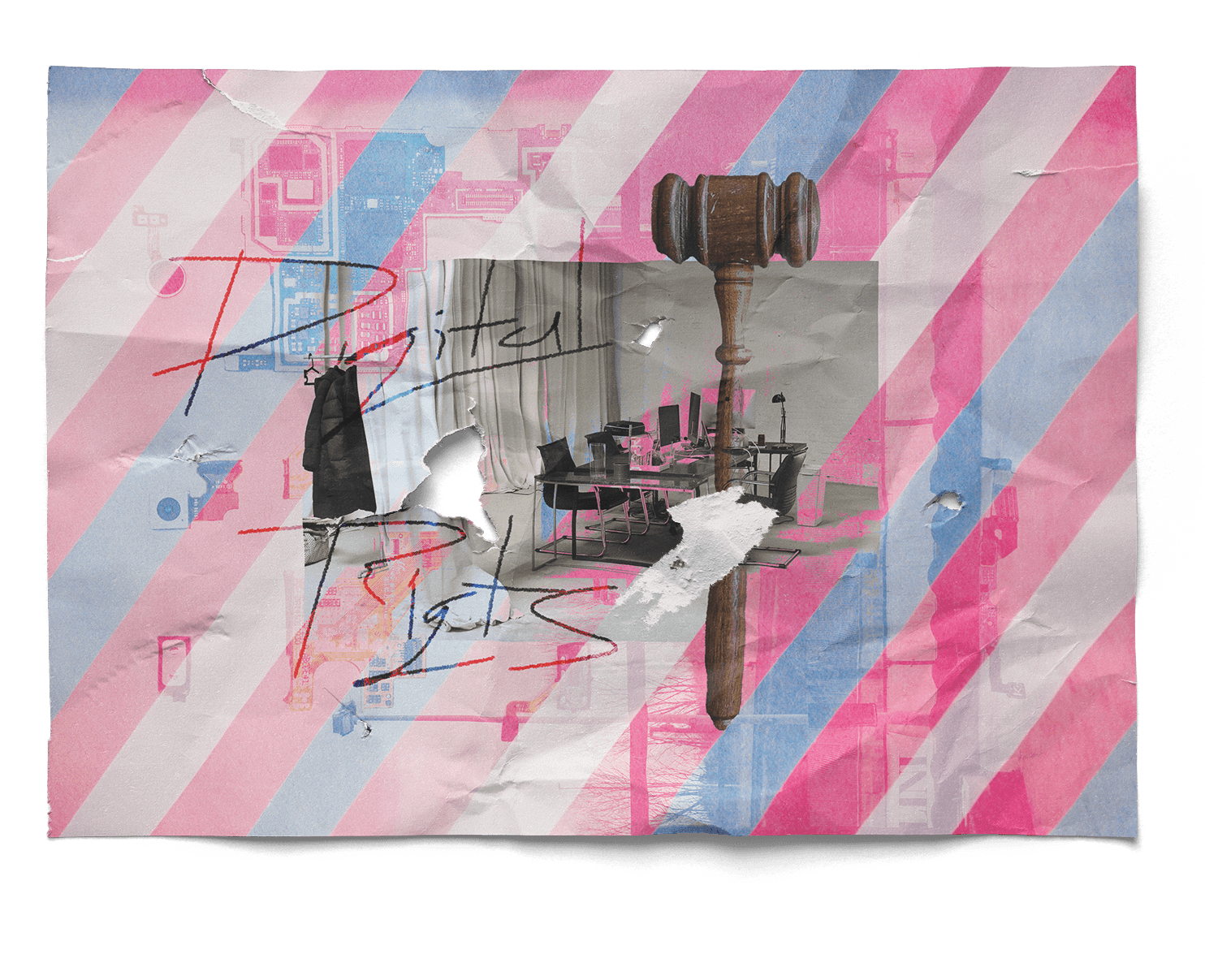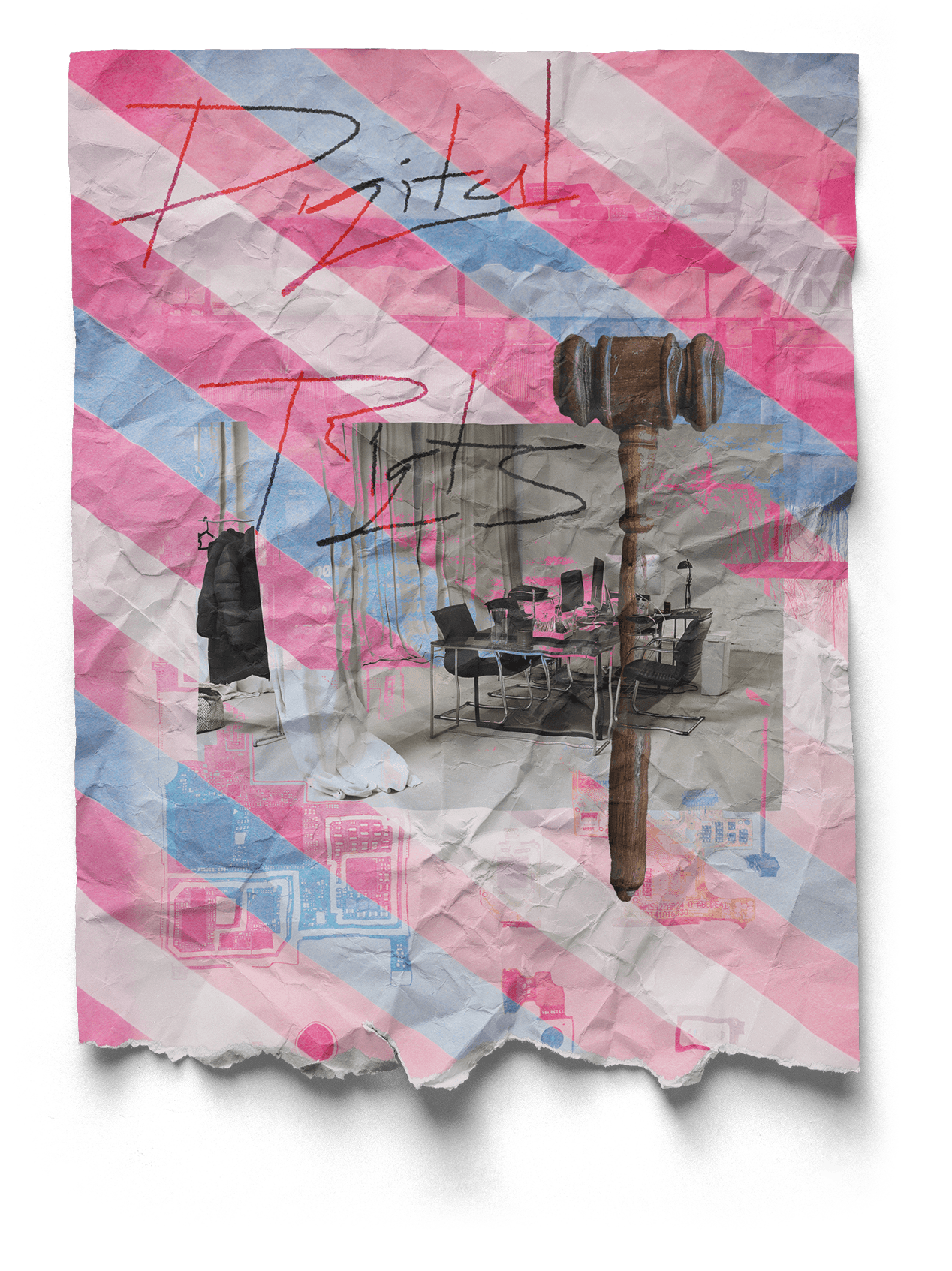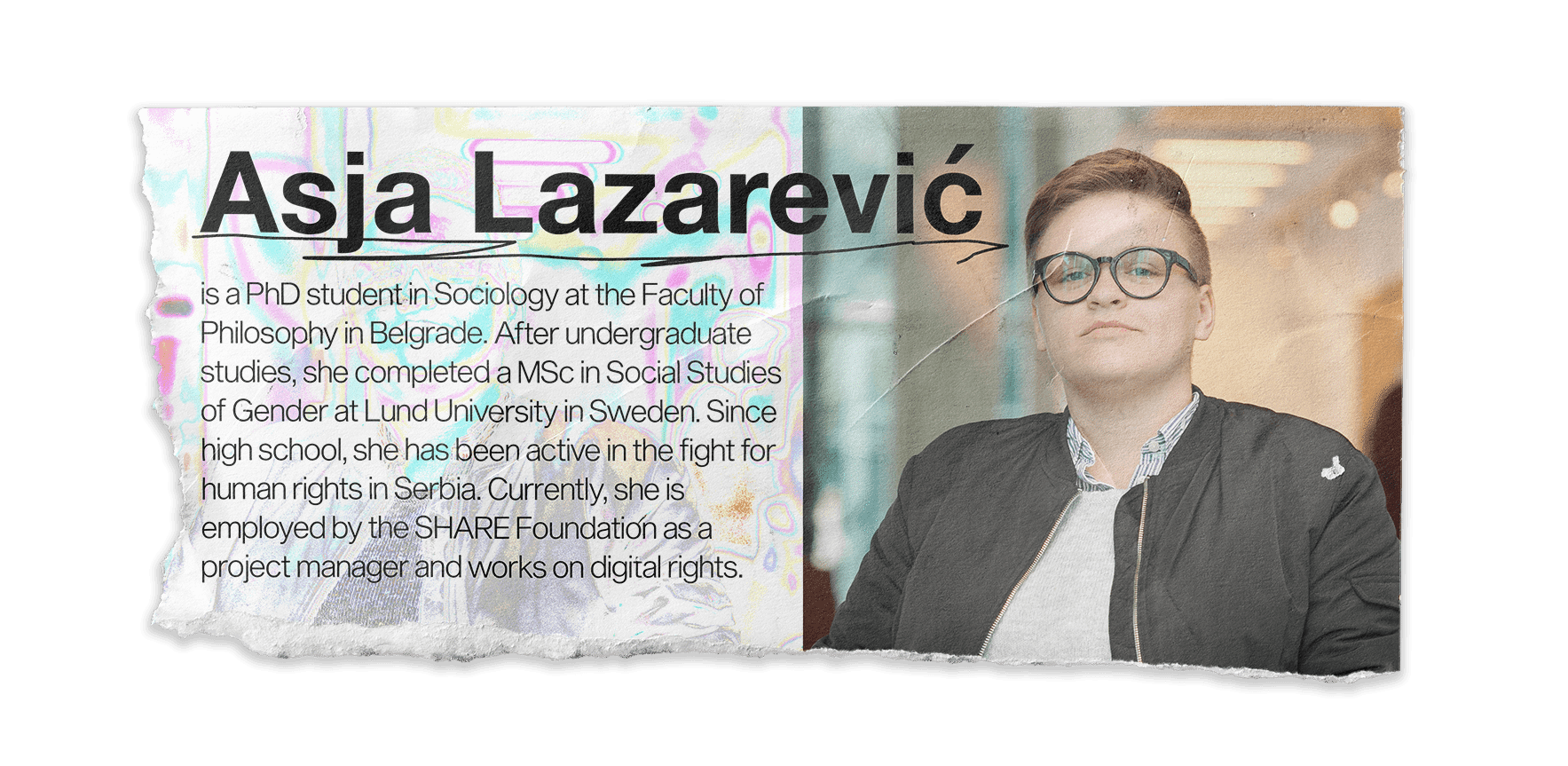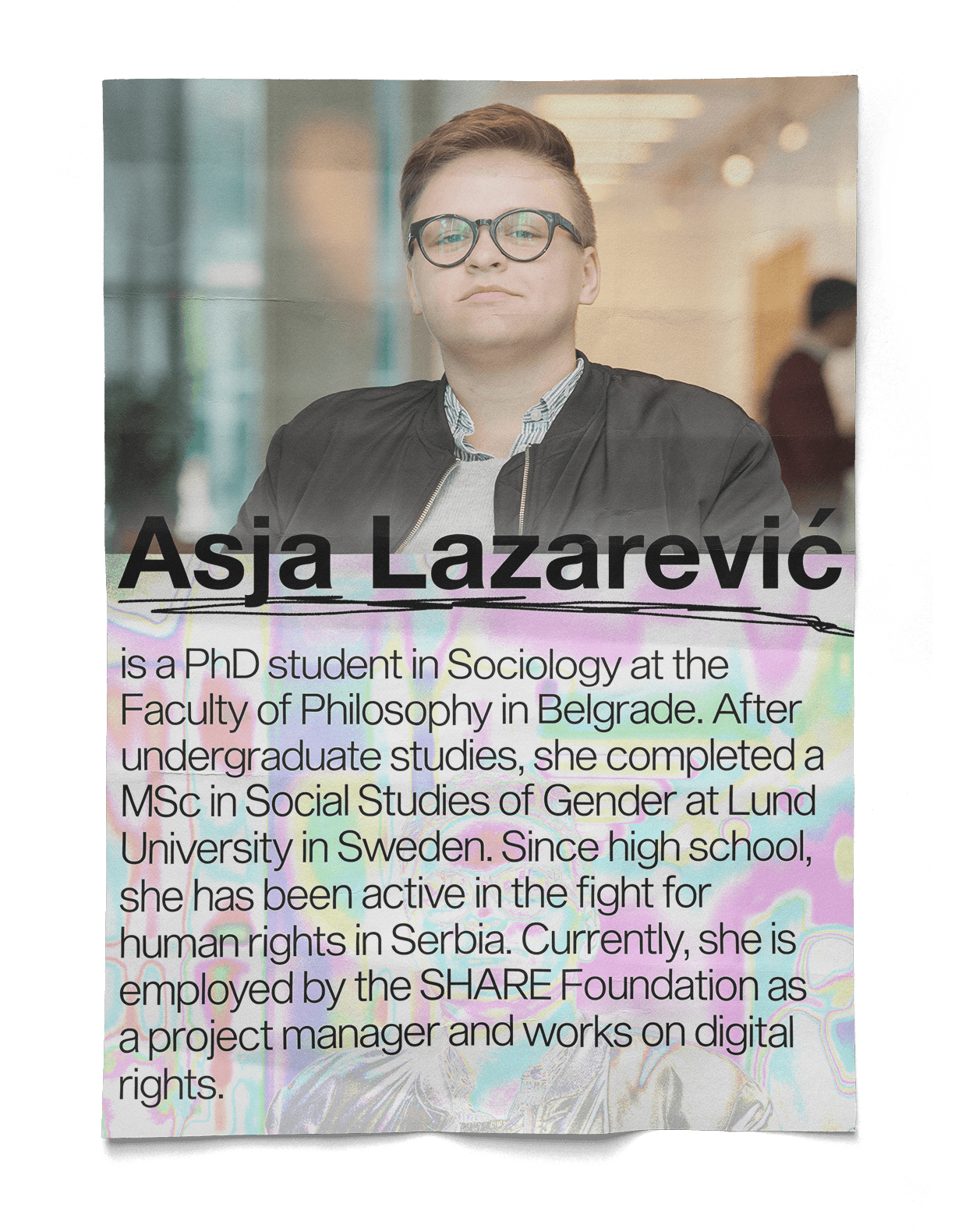On hate crime and discrimination against the LGBTI+ population in Serbia


In order to point out the unfavorable situation in which LGBTI+ people find themselves in Serbia, in this article we talk to Miloš Kovačević, the director of Da se zna!. Da se zna! is an LGBTI+ organization from Serbia, which has been producing reports on hate crimes against LGBTI+ people for years.
What constitutes a hate crime and what are the statistics in this regard?
The definition of hate crime, the elements that constitute this type of illegal behavior, as well as the best ways to approach this form of criminality, are the subject of a long and extensive debate in academic and legal circles at the international level. One of the leading authorities dealing with hate crimes and their consequences for the societies in which they occur, the Office for Democratic Institutions and Human Rights of the Organization for Security and Co-operation in Europe (OSCE/ODIHR), states that a hate crime consists of two elements: criminal offense and motive of prejudice. Namely, one of the reasons why there is a disagreement about a clear definition of hate crime and what characterizes it in different contexts is the fact that the legal frameworks of different countries have different ideas about the type of behavior that is considered a criminal offense, although, in general, there are many similarities. However, it is precisely the second element of hate crime, that is, the motive of prejudice, that makes the difference between crimes committed out of hatred and crimes that are not motivated by prejudice. This means that the perpetrator of the hate crime deliberately chose the target of the crime because of her (presumed or actual) personal characteristics. Hate-motivated incidents are collective name for hate crimes and other related incidents such as discrimination.
The impact and consequences of hate-motivated incidents go beyond the consequences suffered by the survivors themselves. As each person has personal characteristics recognized and protected by law, anyone - both members of the majority and members of minority groups - can become targets of hate-motivated incidents. However, hate-motivated incidents are usually directed at members of groups that are already marginalized, such as the queer population, and are used as mechanisms of oppression aimed at establishing and confirming hierarchies in a particular social order.
According to FRA research, 17% of queer women in Serbia have suffered physical or sexual violence in the previous five years, while as many as 41% of queer women have suffered milder abuse in the previous year because of who they are or because of who they love. Every second queer person in Serbia avoids going to certain places due to fear, and 71% of same-sex couples never hold hands in public for fear of hate-motivated incidents. Therefore, hate-motivated incidents are an extension of the homophobia and transphobia that already pervade society. Furthermore, the harm that hate-motivated incidents do also includes creating feelings of fear in the targeted community, resulting in economic exclusion, as well as creating additional barriers to access to justice. For these reasons, hate-motivated incidents should not be seen as a series of isolated incidents, but rather as a consequence of an undemocratic political culture in which the exercise of rights depends on personal characteristics. These personal characteristics can be: race, language, religion, ethnicity, gender identity, sexual orientation, gender characteristics, disability and others. Violence based on sexual orientation and gender identity (SORI) is at the core of hate crimes against lesbians, gays, bisexuals, and transgender people.
A problem widely recognized in academic and legal circles is that hate-motivated incidents are significantly under-reported and documented compared to incidents where there is no prejudice as a motive. This problem has become so entrenched that some have begun to speak of the "dark number" of hate-motivated incidents when referring to all those cases that go unreported. There are also a number of barriers that hinder the comprehensive documentation of hate-motivated incidents, and they usually fall into two categories: there are factors that lead to cases not being recognized as bias-motivated cases (reduced recognition) and there are circumstances that prevent survivors from reporting the case to the police (reduced reporting). In fact, it is much more difficult for survivors of hate-motivated incidents to report the case to the competent institutions than it is for survivors of incidents where there is no prejudice as a motive.
Hate crimes against queer people are particularly violent, and the psychological trauma faced by survivors is greater and more serious than that faced by survivors of other incidents. These findings are in line with the belief of many in the academic community that hate-motivated incidents are much more difficult than others and that they disable the survivor from acting further and taking the necessary steps to resolve them. This is especially true when talking about hate-motivated incidents suffered by queer survivors. Research conducted in numerous countries provides us with the information that incidents motivated by homophobia and transphobia are rarely reported to the competent institutions. By researching the causes of this phenomenon, theoreticians and lawyers came to know that in some contexts this problem is related to the absence of criminalization of incidents motivated by homophobia and transphobia, which leads to survivors being demotivated to report the incident.
However, this problem is present and persists in countries like Serbia where there is legislation protecting the rights of queer people and where queer people are legally protected from violence and discrimination, which tells us that the reasons for reduced reporting of cases vary. Although hate crime was criminalized 10 years ago, only five hate crime convictions have been handed down so far. The criminal justice system in Serbia is characterized by extreme inefficiency, especially in the pre-investigation procedure. As many as 87.1% of survivors do not have information on whether the competent institutions acted at all after receiving the criminal report. The end result is that the rights of many survivors are not protected. Moreover, if these incidents remain invisible or the competent institutions do not intervene, the perpetrators remain unpunished, this retroactively damages the credibility of the criminal justice system, especially in cases where the failure to react takes on a systematic character. In this way, a vicious circle is created because citizens will have even less trust in competent institutions when they themselves become the targets of such incidents.
How many cases were there in 2021, and is their number increasing or decreasing compared to previous years?
During 2021, 83 illegal acts motivated by SORI were committed and documented, which is 37% more than last year, and 24% more than the year before last. In 2021, physical violence was committed against survivors in 19 (23%) incidents, and every fifth physical incident involved physical injuries. For three years in a row, the share of minors among survivors of hate-motivated incidents has been growing, and in 2021 it reached 16% of the total number of incidents committed against individuals. For five years in a row, hate crimes have been the most reported form of SORI-motivated illegal behavior, while discrimination has occurred to a lesser extent or has been recognized as a problem worth reporting to a lesser extent. Young cisgender gays from Belgrade are most often survivors of documented incidents motivated by hatred. In 2021, over 80% of documented incidents were invisible to the competent institutions. For two years in a row, the number of cases reported to the police has been decreasing, and in 2021 it was reduced to only 12% of the total number of documented incidents. In 2021, every other unreported case was not reported due to distrust in institutions. Ignorance of procedures as a reason for not reporting an incident has been growing for two years in a row, and in 2021 it was cited in 39% of unreported cases.
Are there any specific cases that you can describe to us?
I want to point out one case that is of immense importance for Da se zna! and for the queer community as a whole, in which we took legal action. This is a case of institutional homophobia, that is, structural violence against the queer community. Institutional discrimination occurs as a result of decision-making or the application of practices of institutions that produce harmful consequences for members of certain groups, and related terms are systemic or structural discrimination. Considering that it is the duty of the state to protect our human rights, when it itself violates them, it is of much greater importance than when ordinary citizens violate them. However, this is not only a case of institutional homophobia that happens by inertia, as when you act according to laws that were written decades ago and you simply did not make an effort to change the homophobic legislation, but in which the police carried out violence against gays similar to the one that caused and the Stonewall Rebellion broke out more than half a century ago.
In the middle of May, in the middle of the day, D.M. was brutally beaten by the police in an underground passage near the Palace of Albania in Belgrade. Not long after he entered the public toilet, he heard aggressive banging on the cubicle door followed by obnoxious homophobic insults that I will not list here. The police officers employed at PU Stari Grad cursed him, spat at him and slapped him, knocked him to the floor, threatened to gouge out his eyes, demanded that he inserts his fingers into his anus and threatened that if he did not comply with their actions, they would shove a baton into his anus. This experience lasted 15 minutes. After that they brought D.M. out of a public toilet, threatened him with death, and then identified him using his ID, after which they threw his ID card on the floor and asked him to pick it up. After D.M. tried to pick up his ID, the police officer told him that he was lucky that a child came across, otherwise he would have kicked him in the head.
D.M. turned to the Belgrade Center for Human Rights for legal support, and then to Da se zna!. He filed a complaint with the police internal control service, and he also appealed to nearby bars with a request to preserve the video of the incident. The Commissioner for the Protection of Equality filed a criminal complaint. In the middle of this month, PU Stari Grad invited D.M. to talk about the incident. We could not allow him to go alone to the workplace of thugs disguised as policemen, so my colleague Bojan Lazić and I went as proxies. Despite multiple attempts of preventing us from attending the interview, even though we had a signed power of attorney from the injured party, we succeeded in our intention, so we are currently expecting an internal city inspection. Da se zna! also filed a complaint with the Commissioner for the Protection of Equality in the hope that they will react to this terrible case of violation of the human rights of queer people, and be our allies in our fight to bring the perpetrators to justice.







